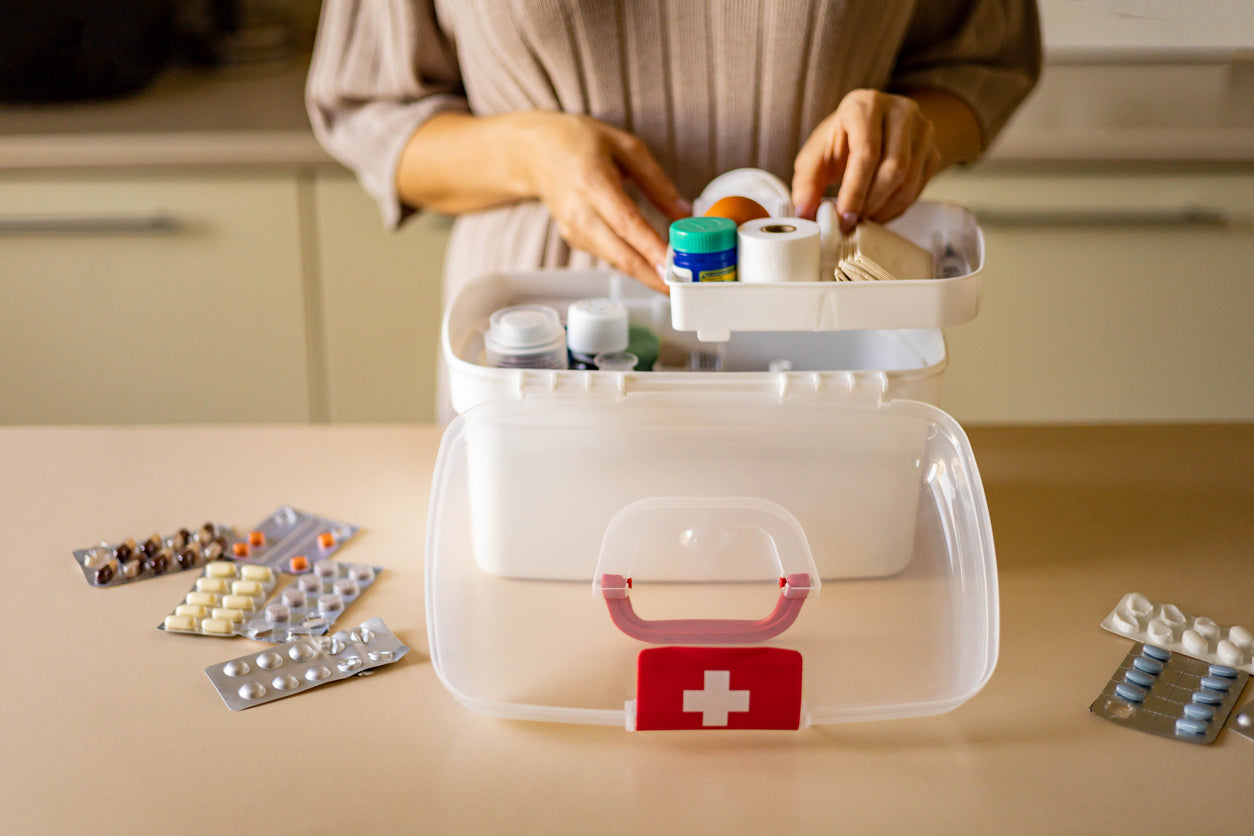Introduction
Having a well-stocked first aid kit is crucial for handling minor injuries and medical emergencies. Whether it's for your home, car, or workplace, a comprehensive first aid kit can make a significant difference in how you manage unexpected health issues. Here's a detailed list of essential items to include in your first aid kit.
Basic Supplies
- Adhesive Bandages (Various Sizes): For covering minor cuts and scrapes.
- Sterile Gauze Pads: To cover and protect larger wounds.
- Medical Tape: To secure gauze pads and bandages.
- Elastic Bandages: For wrapping sprains and strains.
- Antiseptic Wipes: For cleaning wounds and preventing infection.
- Alcohol Pads: To disinfect skin and tools.
- Cotton Balls and Cotton Swabs: For applying ointments and cleaning wounds.
- Tweezers: For removing splinters, ticks, and other small foreign objects.
- Scissors: For cutting bandages, tape, and clothing if necessary.
- Safety Pins: To secure bandages and slings.
Medications
- Antibiotic Ointment: To prevent infections in minor cuts and abrasions.
- Hydrocortisone Cream: For relieving itching and inflammation from rashes and insect bites.
- Pain Relievers: Such as acetaminophen (Tylenol) or ibuprofen (Advil) for pain and fever.
- Aspirin: For adults experiencing chest pain, in case of a suspected heart attack.
- Antihistamines: For allergic reactions.
- Antacids: For indigestion and heartburn.
- Laxatives: For constipation.
- Anti-diarrheal Medication: To manage diarrhea.
- Cough and Cold Medications: For managing symptoms of colds and flu.
Emergency Items
- Thermometer: For checking fevers.
- Instant Cold Packs: For reducing swelling and pain from injuries.
- Hot Packs: For muscle aches and stiffness.
- Emergency Blanket: To prevent hypothermia.
- CPR Face Shield: To safely perform CPR.
- Gloves: Disposable latex or nitrile gloves to protect yourself and others from infections.
- First Aid Manual: A guide to help you handle various medical emergencies.
Specialized Items
- EpiPen: For severe allergic reactions (anaphylaxis).
- Burn Cream: For treating minor burns.
- Eye Wash Solution: To rinse out eyes from irritants.
- Finger Splints: For stabilizing injured fingers.
- Oral Rehydration Salts: To treat dehydration.
- Burn Dressings: Specially designed dressings for burns.
- Tourniquet: For severe bleeding (use only with proper training).
Personal Items
- Personal Medications: Any prescription medications you or your family members need.
- Medical Information: A list of medical conditions, allergies, and contact information for your doctor.
- Emergency Contact Numbers: Easily accessible contact information for family members and medical professionals.
Maintenance Tips
- Regularly Check Expiry Dates: Ensure that all medications and supplies are up to date.
- Restock Used Items: Replace any items that have been used as soon as possible.
- Store in a Cool, Dry Place: Keep the kit in a location that is easily accessible but protected from extreme temperatures and moisture.
Conclusion
A well-prepared first aid kit is an essential part of home safety. By including these items, you can be ready to handle a wide range of minor injuries and medical emergencies effectively. Remember, while a first aid kit is invaluable for immediate care, always seek professional medical help for serious injuries and health issues.

